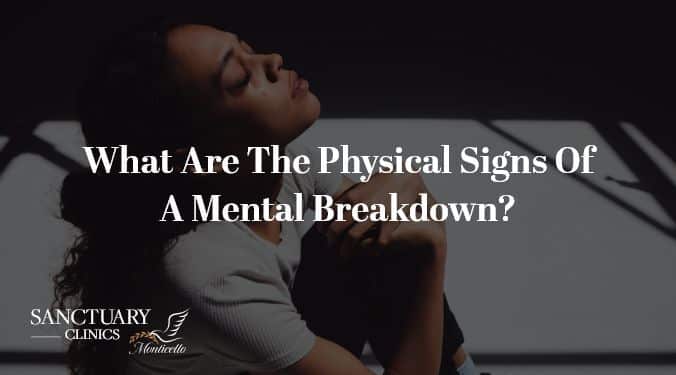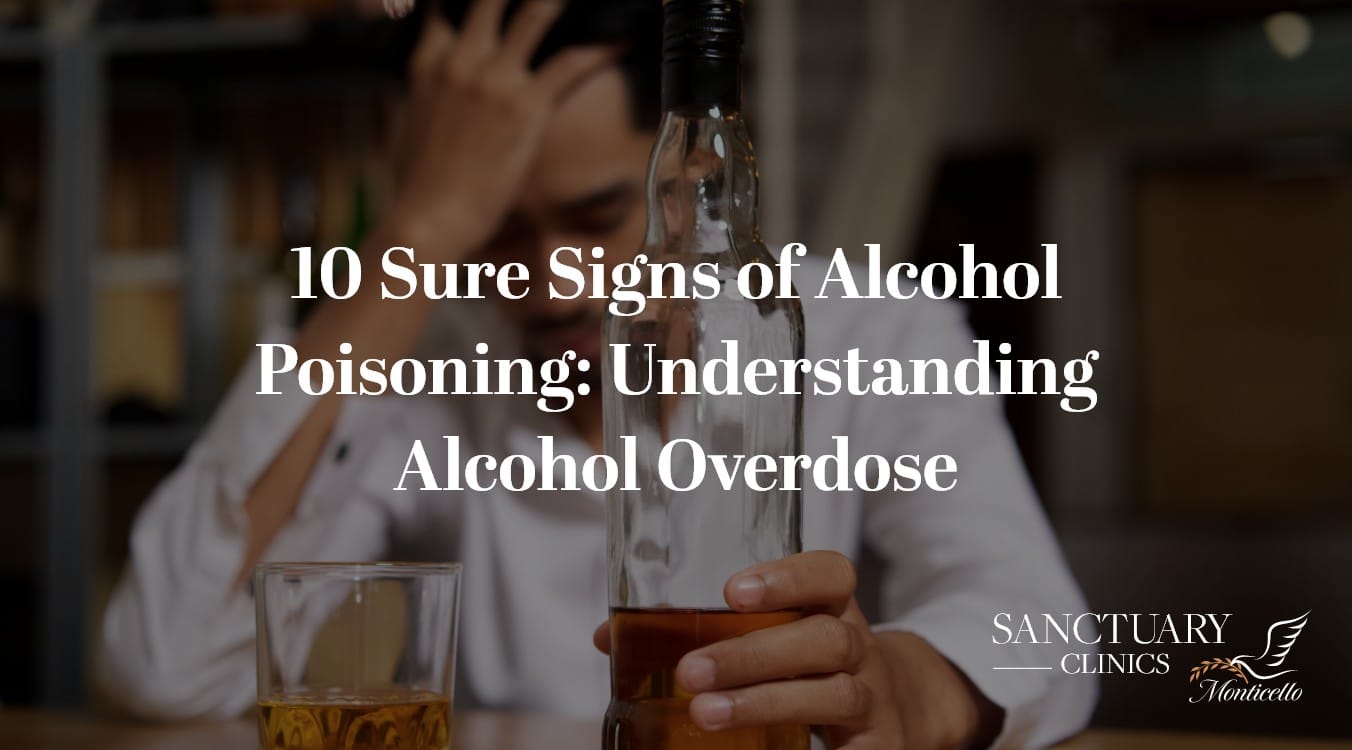There are several signs of a mental breakdown. A mental breakdown can be a very overwhelming experience. 26% of Americans suffer from mental health disorders that affect their daily life. So, look out for these signs.
Muscle Tension
Muscle tension is a common physical sign of a mental breakdown. It can manifest in various ways throughout the body. When someone experiences intense stress, their muscles may tighten and contract involuntarily. Increased muscle tension can lead to physical pain and discomfort. It commonly affects the neck, shoulders, and back, causing headaches or migraines. Sustained muscle tension consumes energy and can also lead to fatigue and muscle pains.
Clammy Hands
Clammy hands are another physical sign that can be associated with a mental breakdown. When somebody is going through intense emotional distress, their body’s autonomic nervous system can act up. This can cause their hands to become clammy or sweaty. This excessive sweating is caused by the activation of the body’s sympathetic nervous system. It is responsible for the fight-or-flight response.
Rapid Heartbeat
Rapid heartbeat, also known as tachycardia, is another physical sign that can be associated with a mental breakdown. Intense stress can cause the body’s sympathetic nervous system to become activated. This can lead to an increase in heart rate. The racing heart, which is a physiological response, is part of the body’s fight-or-flight mechanism.
Difficulty Sleeping
Difficulty sleeping is another common physical sign associated with a mental breakdown. It is also known as insomnia. During a mental breakdown, racing thoughts, worries, or intense emotions can make it challenging to relax and drift off to sleep. People experiencing a mental breakdown may find it difficult to initiate sleep, even when they feel physically tired.
Fatigue and Low Energy Levels
Fatigue and low energy levels are common physical signs associated with a mental breakdown. The emotional toll of a mental breakdown can leave people feeling physically drained and exhausted. Coping with distressing emotions can be physically taxing and deplete the body’s energy reserves.
What are the emotional symptoms of a mental breakdown?
Apart from physical signs, there are also emotional symptoms of a mental breakdown. Look out for these psychological symptoms.
Anxiety, Fear, and Panic Attacks
During a mental breakdown, emotional symptoms such as anxiety, fear, and panic attacks are common. They may also have intense emotional responses to perceived threats. It can lead to heightened fear and irrational thoughts. Panic attacks can occur suddenly, causing rapid heart rate, shortness of breath, and a sense of losing control.
Feeling Overwhelmed and Out of Control
A mental breakdown can also cause you to feel overwhelmed and out of control. The emotional distress and stress become so intense that you may find it challenging to manage your emotions and thoughts. This overwhelming feeling can lead to a sense of helplessness. It may also contribute to further emotional and physical symptoms.
Low Self-Esteem and Self-Doubt
People who are experiencing a mental breakdown can also experience low self-esteem and self-doubt. They may develop negative beliefs about themselves and their abilities. They might end up feeling inadequate or unworthy. The emotional turmoil and stress can erode their confidence and create self-doubt. This makes it challenging to trust their decisions or judgment.
Sadness or Depression
Sadness or depression can also be symptoms of a mental breakdown. Overwhelming stress can lead to persistent feelings of sadness that affect everyday life and daily tasks of people.
Irritability and Anger Outbursts
Irritability and anger outbursts are common emotional symptoms experienced during a mental breakdown. People might find it challenging to control their anger, leading to sudden and intense anger outbursts.
Get Help Today.
We are here to help you through every aspect of recovery.
Let us call you to learn more about our treatment options.
We are here to help you through every aspect of recovery. Let us call you to learn more about our treatment options.
What happens when you have a mental breakdown?
It is difficult to understand what happens when you have a mental breakdown unless you are having it. It is an overwhelming amount of feelings. You can feel a range of emotions. However, it is important to understand that you are not alone in this. A mental breakdown is a medical term. However, it is not a formal mental health diagnosis and doesn’t point to a specific mental health issue. But, it does lead to profound mental distress. People often describe it as reaching a breaking point, being overwhelmed by their intense stress. They feel like they’re falling apart without the means to cope. This state can bring about anxiety and withdrawal. It might also trigger feelings of incapacity, and difficulty concentrating or making decisions. It’s as if they are emotionally debilitated and unable to function normally.
What triggers mental breakdowns?
There are many things that trigger mental breakdowns. There is no single answer to this question. A mental breakdown is different for everyone. What may be a trigger for you, may not be a trigger for someone else. Life-changing events, whether positive or negative, can contribute to a mental breakdown. Such events may involve getting married, becoming a parent, leaving for college, going through a divorce, or relocating to a new place. A stressful situation is invariably a common factor. Experiencing a traumatic event like the loss of a loved one, a car accident, or physical abuse can also lead to emotional distress. Untreated depression or anxiety can escalate and contribute to a mental breakdown. Feeling overwhelmed by the demands of work or home, commonly referred to as “burnout,” is another factor that may trigger this state. Moreover, inadequate sleep habits can have detrimental effects on a person’s mental well-being. It can potentially exacerbate their vulnerability to an emotional breakdown.
How long does a mental breakdown last?
A mental breakdown can last for a short amount of time or can go on for days. There is no specific timeframe for how long a mental breakdown lasts. This is because it can be influenced by the individual’s underlying mental health condition. According to Newport Institute, a mental breakdown lasts longer than a panic attack. It is generally longer than 30 minutes. For some people, a mental breakdown may be a brief and acute episode of intense emotional distress, lasting only a few days or weeks. In other cases, it can be a more prolonged period of emotional turmoil that may persist for several months or even longer.
What does a mental breakdown look like?
It is difficult to explain what a mental breakdown looks like. The signs of a mental breakdown can differ from one individual to another. It can encompass both emotional and physical manifestations. These symptoms may be influenced by a person’s mental and emotional state, as well as the underlying reasons for their distress. During a mental breakdown, the response to stress levels might resemble other mental health conditions. It may be similar to chronic stress, anxiety, or depression. This makes it challenging to differentiate between them. Everyone has a different response to a mental breakdown. However, it is important to look out for the common signs that can help you to identify them more easily.

How do you stop a mental breakdown?
Stopping a mental breakdown is not always easy. The reason is that the trigger may be different for different people. However, there are a few things that can prevent people from experiencing a mental breakdown. Firstly, leading a healthy lifestyle is one of the most important things you can do. Eat well and exercise regularly to keep your body fit. How you maintain your physical health can also impact your mental health. Moreover, do not forget to use relaxation techniques. Practice mindfulness and yoga to keep your mind relaxed. You can also practice breathing exercises. Work on hobbies and do things that make you happy. While it is easier said than done, these are just a few things that can help you stay on top of things. When you are experiencing a nervous breakdown, you may feel like finding joy is impossible. However, the joy lies in the small things. Try out different things and see what works for you.
Can someone recover from a mental breakdown?
Yes, it is possible to recover from a mental breakdown. You can do it on your own. But, if things get serious, do not hesitate from seeking professional treatment. An emotional health crisis is never easy. Engaging in therapy can provide a safe environment for individuals to explore their emotions. Therapists can help develop healthy strategies for managing persistent stress. They can also help people to improve their overall emotional resilience. Essentially, they can help you increase your tolerance for stress. At Sanctuary Clinics, we make sure to understand the different unique cases of our patients. And, accordingly offer treatment plans that will help them the most.
Are the mental breakdown treatment centers?
Yes, there are mental breakdown treatment centers. If your mental health crisis is becoming serious, know that you don’t have to face it alone. At Sanctuary Clinics, we are here to support you on your journey to recovery. Our compassionate team of mental health professionals is dedicated to providing personalized care. They are trained in offering effective interventions to help you regain emotional balance. Reach out to us today, and let’s work together toward healing and improved well-being. Your mental health matters, and we are here to help.
Get Help Today.
We are here to help you through every aspect of recovery.
Let us call you to learn more about our treatment options.
We are here to help you through every aspect of recovery. Let us call you to learn more about our treatment options.









